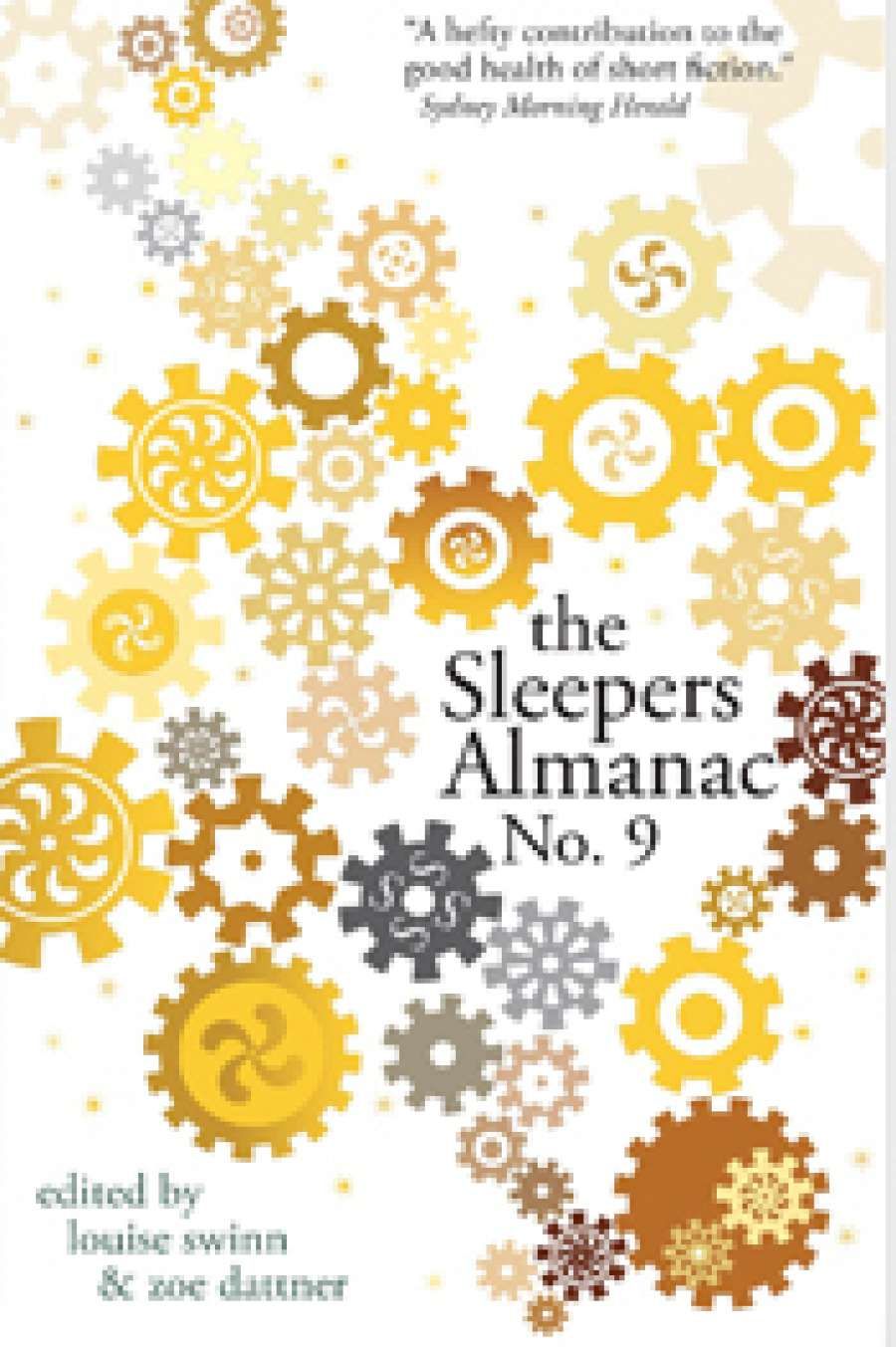
- Free Article: No
- Contents Category: Journals
- Review Article: Yes
- Online Only: No
- Custom Highlight Text:
Sleepers Publishing are up to Almanac No. 9. Despite the ever-increasing competition from newer literary journals, the high quality of this annual short-fiction anthology remains intact. Eschewing the theme-based model used by many journals and instead offering diversity in subject, style, and tone, the Almanac has never been anything less than an intriguing read, and this is certainly true this time around. While some short story perennials are present (one may find oneself tempted to call for a blanket ban forthwith on stories about pregnancy and divorce), the inventiveness and verve of so many of these stories more than makes up for the tiredness of some approaches and subjects.
- Book 1 Title: The Sleepers Almanac
- Book 1 Subtitle: No. 9
- Book 1 Biblio: Sleepers Publishing, $24.95 pb, 356 pp, 9780987507006
As always, there is a mixture of familiar names and emerging talent. Some of the more established writers are in good form here. Ryan O’Neill’s ‘The Stories I Read as My Mother Died’ is an unsentimental, darkly comic metafictive story that is refreshingly playful in tone. Pierz Newton-John’s frankly autobiographical tale of his family’s inflated sense of intellectual prowess and of his and his brother’s drug-fuelled philosophical adventures (‘Something for Nothing’) is both hilarious and deftly handled. One of the most affecting of the collection is also one of the shortest. The Almanac accepts submissions of up to 10,000 words, and some long stories here outstay their welcome. Carol Lefevre’s ‘Last Light’ is one of those bitter-sweet short story reading experiences that make you wish it were longer. In many of the more engaging contributions, fiction and memoir merge, none more beautifully than this highly compressed meditation on childhood and memory.
Then there are impressive contributions from newer voices. Deserving of special mention is Anicca Maleedy-Main’s ‘The Block’, which is social realism as hallucination, polishing life in the suburbs to such a nightmarish lustre that it practically gleams with Australian ugliness. All in all, another fine Almanac.


Comments powered by CComment